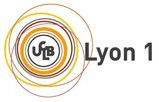Dynamics of Processes On & Off Networks
| Quand ? |
Du 20/06/2016 à 09:00 au 22/06/2016 à 17:00 |
|---|---|
| Où ? | Lyon |
| Ajouter un événement au calendrier |
|
Motivation and Aims
Large-scale networks with complex interaction patterns between elements are found in abundance in both nature and man-made systems (e.g., genetic pathways, ecological networks, social networks, networks of scientific collaboration, WWW, peer-to-peer networks, power grid etc.). The main aim of this workshop is to explore the statistical dynamics on and of such networks. “Dynamics on networks” refers to the different types of so-called processes (e.g. proliferation, diffusion etc.) that take place on networks. The functionality/efficiency of such processes is strongly affected by the topology as well as the dynamic behavior of the network. On the other hand, “Dynamics of networks” mainly refers to various phenomena (for instance self-organization) that go on in order to bring about certain changes in the topology of the network. It has become clear that the stability and robustness of highly dynamical networks such as networks of mobile agents, and the study of dynamical processes on networks are among the hottest new theoretical challenges for Complex Network research. Accordingly, Dynamics On and Of Complex Networks will focus on these topics.
One way to address this challenge of data representation is to consider not only individual entities, but also relationships between them. Considering relationships between entities leads to dealing with graphs. Graphs are a convenient data model for representing massive digital data sets in many applications. With such a unified representation, many information processing tasks become graph analysis problems. However, graphs are not only of interest for representing the data to facilitate its analysis, but also for defining graph-theoretical algorithms that enable the processing of data associated with both graph edges and vertices. Indeed, more generally, massive datasets represented as graphs can be seen as a set of data samples, with one sample at each vertex in the graph. In such a scenario, the high-dimensional data associated to vertices can be viewed as graph signals. There is emerging interest in the development of algorithms that enable the processing of graph signals: one might be interested in filtering, clustering, or compressing this structured type of signals. The analysis of graph signals faces several open challenges, mainly because of the combinatorial nature of the involved signals, that are not necessarily embedded in Euclidean spaces. This is leading to the emergence of a new research field on “Graph Signal Processing” at the intersection of computer science, mathematics, and signal processing. This new research field aims at developing novel approaches enlarging the scope of traditional signal processing methods and applications, so that they can be applied to arbitrary graph signals.
Goals
The workshop expects burgeoning multi-disciplinary research contributions that combine methods from computer science, statistical physics, graph signal processing, nonlinear dynamics, epidemiology, econometrics and social network theory, to study common problems in systems exhibiting a complex network structure (e.g., biological systems, linguistic systems, social systems and various other man-made systems like the Internet, WWW, peer-to-peer systems etc.). The workshop will particularly promote research contributions on dynamical networks and dynamics on networks. Accordingly, one of the major goals of the workshop is to bring together different research areas (and their corresponding communities): network science, mathematics, computer science, signal processing and epidemiology.










